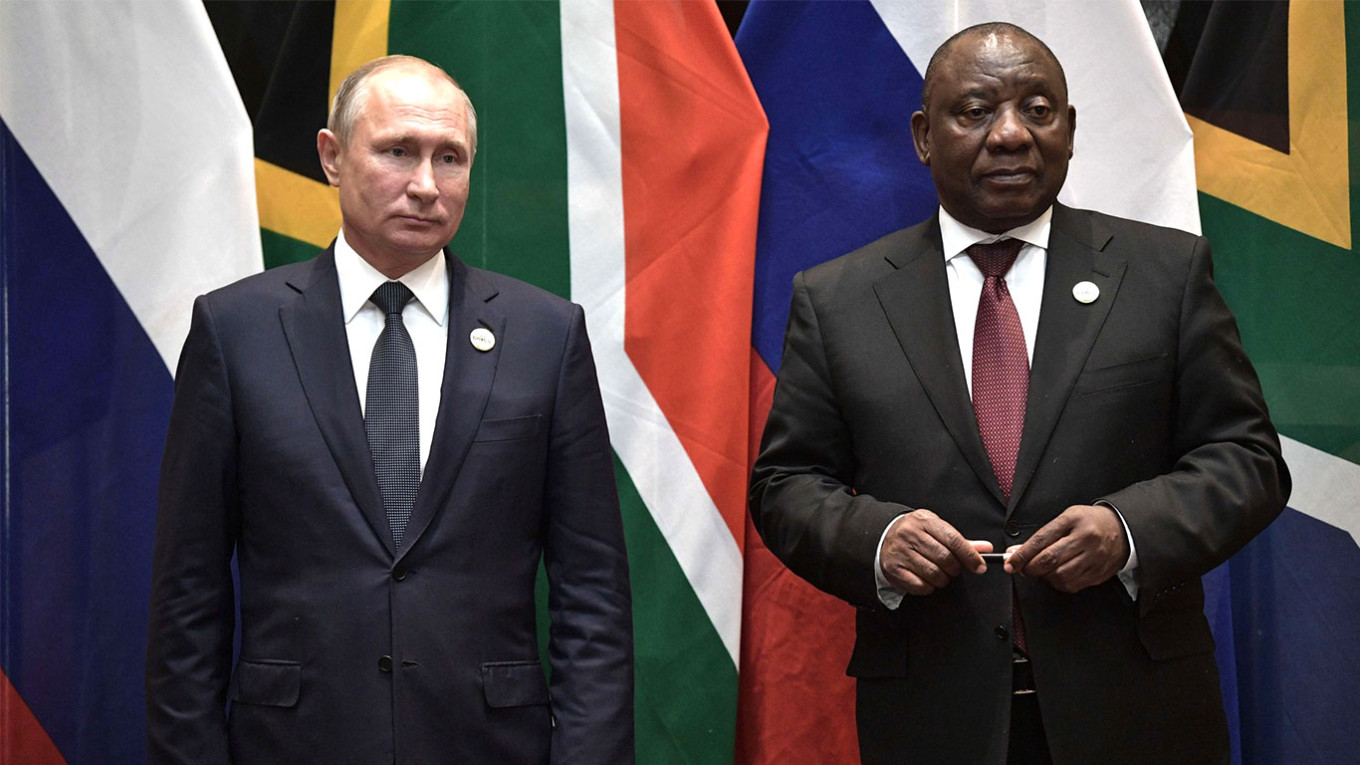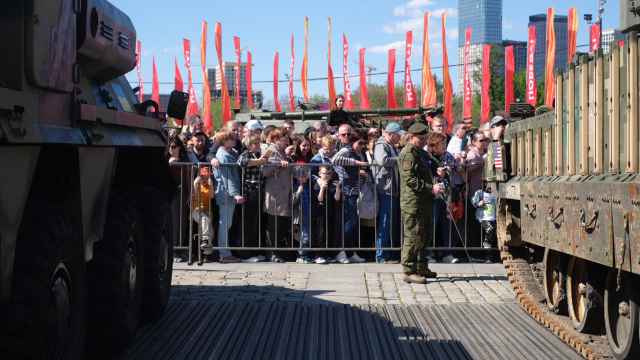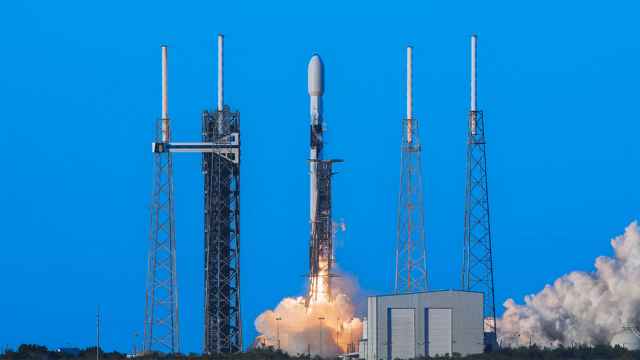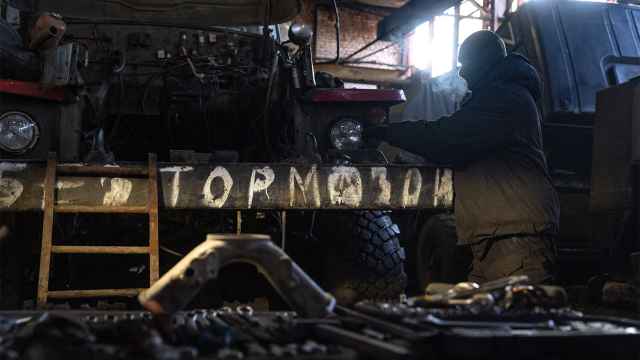South Africans were left angry and baffled on Friday after the U.S. accused their country of secretly shipping arms to Russia, a charge that triggered both a government rebuke but also the announcement of an inquiry.
U.S. ambassador Reuben Brigety on Thursday said Washington was confident weapons and ammunition had been laden onto a Russian freighter that docked at a Cape Town naval base.
The explosive remarks drew an angry response from President Cyril Ramaphosa, who did not deny the charge but said a retired judge would lead an investigation into the matter.
They were also seized on by the Kremlin, which on Friday said Russian President Vladimir Putin has agreed to deepen ties with Ramaphosa.
The announcement of a probe was welcomed by the United States but met with a mix of ridicule and bewilderment at home, with many questioning how the government could not have known what had happened.
"It perhaps points to a South African president who simply is unaware of what is happening effectively under his nose," political and economic analyst Daniel Silke told AFP.
The emerging picture was of "information disarray" within the government, he said.
The Lady R, a cargo vessel under Western sanctions flying a Russian flag, docked at South Africa's largest naval base in December, officially to offload an old order of ammunition.
But Ambassador Brigety said intelligence showed weaponry was loaded onto the vessel before it headed back to Russia.
"Did we or didn't we? And if we did, shouldn't the president know?" Bongani Bingwa, the host of a popular morning radio show, wrote on Twitter.
Others quipped that the government appeared to be setting up inquiries for everything.
'Disingenuous'
The deadline for the latest investigation has not been revealed, and there has been no immediate announcement as to who will lead it.
Khumbudzo Ntshavheni, a minister in the president's office, told local media on Friday that South Africa "cannot be bullied by the U.S." and would follow a "time frame that is suitable for us."
If confirmed, the shipment would mark a break from South Africa's professed neutrality over the conflict in Ukraine.
The foreign ministry on Friday said there was no record of any approved arms sales to Russia during the period in question but the probe would shed light on the case.
"There should be nothing to investigate," Kobus Marais, a lawmaker with the main opposition party, the Democratic Alliance (DA), told AFP.
"The president as the commander-in-chief and the minister of defense should know exactly what happened," he said.
"It's disingenuous of them to suggest they're innocent and just bystanders."
South Africa has been walking a diplomatic tightrope over Russia's invasion of Ukraine, which it has refused to condemn, saying it prefers dialogue to end the war.
A continental powerhouse, the country has strong economic and trade relations with the U.S. and Europe.
Trade with Russia is much smaller, but Pretoria has ties with Moscow dating back decades, to when the Kremlin supported the ruling African National Congress (ANC) party in its struggle against apartheid.
'Economic suicide'
The remarks triggered a diplomatic spat just hours after Brigety made them, during a briefing with local media.
The foreign ministry on Friday said it would formally protest to Brigety while Foreign Minister Naledi Pandor would speak to Washington.
Meanwhile, the Kremlin said Putin and Ramaphosa "expressed their intentions to further intensify mutually beneficial ties in various fields" during a call between the two leaders.
The quarrel has also heightened concerns about South Africa's ailing economy, with analysts saying the country has much to lose and little to gain from a fight with Washington.
The rand dropped sharply against the dollar reaching its lowest point in three years on Thursday.
Afrikaans rights group AfriForum said the government was "leading South Africa to economic suicide" by siding with Russia.
Some worry the U.S. could kick the country out of the African Growth and Opportunity Act (AGOA) — a deal granting duty-free access to the U.S. market for products from sub-Saharan nations that comply with standards on rights and democracy.
South Africa is the largest beneficiary of the agreement, which was worth $21 billion to the country's economy last year, according to the U.S. ambassador.
"This is a very serious matter," said Silke, adding South Africa's economy was already "very vulnerable", facing almost zero growth and contracting domestic demand.
A Message from The Moscow Times:
Dear readers,
We are facing unprecedented challenges. Russia's Prosecutor General's Office has designated The Moscow Times as an "undesirable" organization, criminalizing our work and putting our staff at risk of prosecution. This follows our earlier unjust labeling as a "foreign agent."
These actions are direct attempts to silence independent journalism in Russia. The authorities claim our work "discredits the decisions of the Russian leadership." We see things differently: we strive to provide accurate, unbiased reporting on Russia.
We, the journalists of The Moscow Times, refuse to be silenced. But to continue our work, we need your help.
Your support, no matter how small, makes a world of difference. If you can, please support us monthly starting from just $2. It's quick to set up, and every contribution makes a significant impact.
By supporting The Moscow Times, you're defending open, independent journalism in the face of repression. Thank you for standing with us.
Remind me later.






